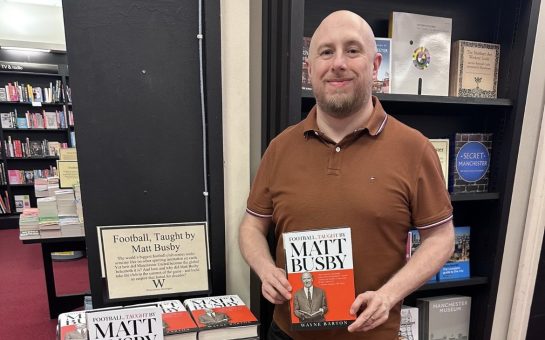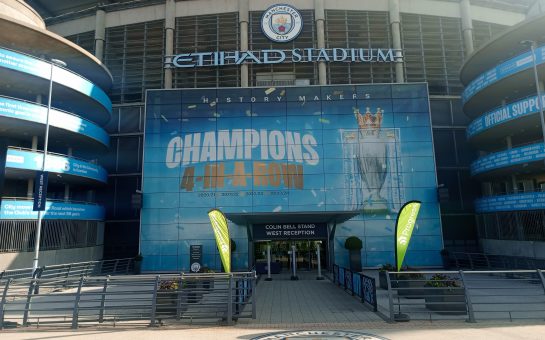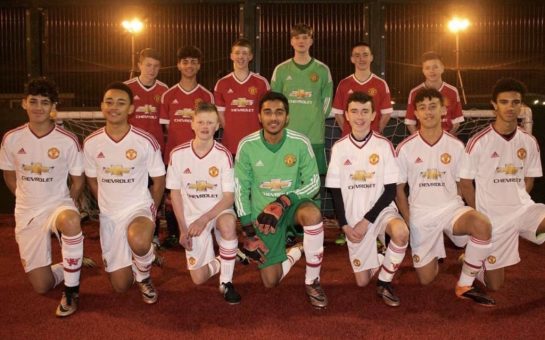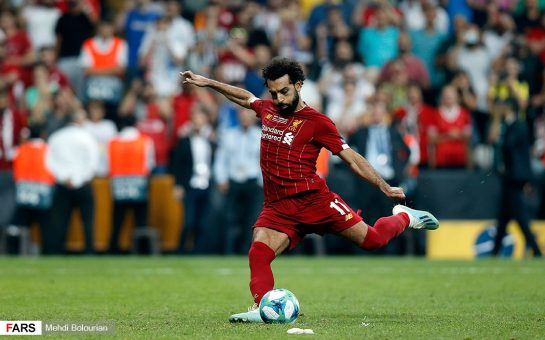Without even addressing the nauseous levels of bare-faced marketing spiel that such a slogan evokes, Liverpool Football Club’s merchandising tagline ‘This Means More’ has received a mixed reception in recent times, especially amidst reports concerning the club’s recent controversial attempt to trademark the word ‘Liverpool’.
The implications of such a trademark would have meant that the Anfield giants would have been well within their rights to sue any business that used the word itself to sell a product, to the detriment of a host of local traders and the outrage of pretty much anybody residing within the city itself.
Absurd as this notion may appear to anybody beyond the confines of the Fenway Sports Group boardroom with a basic grasp of general knowledge, this is the same Liverpool that brought you Beatlemania, the railway and the Grand National, just for context.
For their Boston-based owners, the city of Liverpool may be synonymous with its successful football side. However, to locals, their attempts and simply emphasised the obvious disconnect between those at boardroom level and those proudly native to the city itself.
In many ways, the attempts to trademark the word ‘Liverpool’ is symptomatic of the thinly-veiled culture of unapologetic profiteering that has emerged at the so-called super clubs of the European game.
Perhaps the powers that be at the Merseyside club interpreted the statement in question as being ‘[Profit] Means More’, which would seem more appropriate.
Clubs like Liverpool love to cajole their adoring fans by claiming the institution itself sees their support as forming as intrinsic a part of the fabric of the club as its playing staff, however, as the old adage goes, actions often speak louder than words.
When the city of Liverpool, the great beating heart of British socialism, is having to fight battles with the owners of its world-famous football club to stave off the threat of its own name falling into the grasp of its profit-hungry custodians in Boston, it is clear the game is facing a real and, frankly, distressing identity crisis.
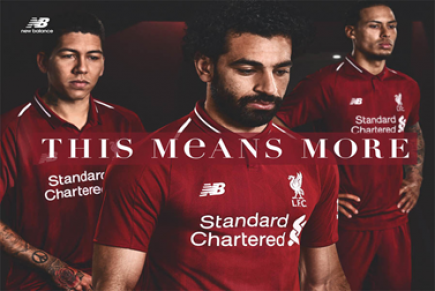
Caught in the choppy waters between honouring the values of the place and people that helped make the club’s legendary status in the game and satisfying the sharp-suited decision makers across the Atlantic who ultimately pull all the punches on Merseyside, it is clear that FSG are beginning to learn that the normal rules of the brazen capitalist world simply do not hold court when it comes to clubs so essential to their communities such as Liverpool.
To Kopites, the idea of Liverpool as a ‘brand’ will smack of a contradiction in terms. This is especially true when the brand in question is based almost entirely on the visceral support of a mostly left-leaning fanbase with an, at best, sceptical attitude towards corporatism.
In theory, one might have presumed that in this era of billionaire benefactors and lucrative television deals, Premier League clubs and their supporters have never had it so good.
However, with ticket prices at an all-time high, amongst a host of other issues, tensions between the boardroom and supporters are far from uncommon in the upper echelons of the English game and for good reason.
For a sport historically characterised by its working-class roots, the corporatism of the clubs that make up the Premier League – the world’s most popular domestic competition – seems an uneasy fit for a game with origins so at odds with its current manifestation.
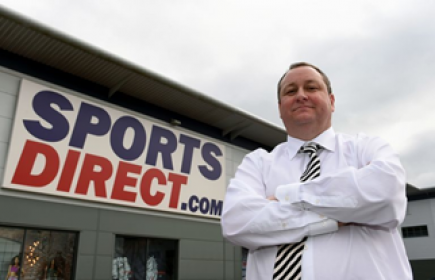
Perhaps the country’s highest-profile example of a long running standoff between ownership and supporters can be found within the walls of St. James’ Park, the fabled home of Newcastle United.
‘HAND IT TO THE FANS INSTEAD’
Their owner is Mike Ashley, the owner of high street retailers Sports Direct and House of Fraser. He is estimated to be worth just short of £2bn but has long admitted defeat in the race to compete with the leading lights of the Premier League’s top six, the club after all having been up for sale for a number of years now.
Instead, he freely admits that he runs the Tyneside outfit in the same way he does his high street businesses – with minimal investment and an emphasis on self-sustainability.
As a business, one would suggest Newcastle United is remarkably stable. The club has recorded a profit in seven out of the last eight years with its balance sheets showing a club that is largely debt-free.
On the pitch, however, the end-game for Ashley is to retain simply Newcastle’s top-flight status in the hope of attracting a buyer, which is a far cry from the club that endeared itself to the nation while challenging for the title during the 1990s and early 2000s under Kevin Keegan and Sir Bobby Robson.
Instead, since Ashley bought the club in 2007, Toon fans have had to endure two relegations with their side regular fixtures in the Premier League’s bottom half. In short, while the club is far from struggling from a business perspective, for the Gallowgate faithful, profit amounts to very little when the club appears as far as ever from challenging for major honours.
Such is the infamy of the reign of controversial owner Ashley, Labour Party leader Jeremy Corbyn this week specifically vowed to “take the beautiful game away from billionaires” feeling compelled enough to directly name-check the divisive Sports Direct chief in the process.
Meeting with disgruntled Magpies supporters protesting against Ashley’s rule, he said: “[Those] who put their business interests ahead of everything else, marginalise supporters and even put the financial security of clubs at risk.
“A football club is more than just a club, it is an institution at the heart of our communities.
“Clubs are part of the social fabric that binds us together. They are too important to be left in the hands of bad owners who put their business interests ahead of everything else, marginalise supporters and even put the financial security of clubs at risk.
“Football is our lives, our community and it is the place people go to socialise and enjoy each other’s company. Let’s take the beautiful game away from the billionaires and hand it to the fans instead.”
£400MILLION CASH BOOST?
Part of the Labour leader’s pledge included a commitment to legally bind the money-spinning Premier League to invest 5% of its income from television rights back into schemes to improve the standards of facilities and coaching at the lower levels of the game.
Estimates currently suggest that grassroots football would stand to gain around £400m worth of funding per year under Corbyn’s scheme.
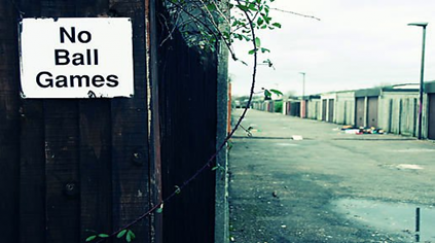
Labour’s vow came after former Glasgow Rangers forward Kris Boyd weighed into the debate this week making a passionate and, in some ways, nostalgic protestation against what he recognises as the gentrification of the beautiful game, eloquently articulating the gap Labour’s scheme will likely fill for young people.
“You see ‘No ball games’ signs up everywhere you go now. Why? You’re not allowed to play on the street […] we’re encouraging people not to do it,” he said.
“Then we’re moaning that all kids want to do is play computers – they’ve got nothing else to do because it costs an absolute fortune to go and play football because of what our country has created.”
For the 18-time Scottish international, it is clear that working-class children are simply now being priced out of the game entirely.
“We’ve put all-weather pitches up, they’re great, fantastic but kids have to pay a fortune to get on them.
“We’re losing too many kids, it’s now a middle-class sport and, if we’re honest, being a footballer is not the be all end all for kids coming through.”
The Ibrox favourite did not exactly paint an optimistic picture of the future of the game at grassroots level, either.
“The football community gets the blame but it’s everybody, collectively.
“I’m afraid to say, I don’t think that as a country or football nation we’ve hit rock bottom yet.”
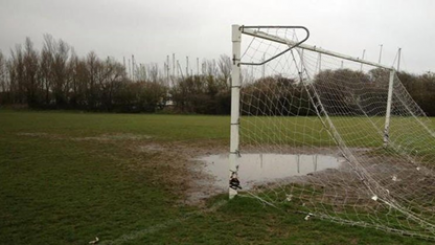
GERMANY 1 ENGLAND 0
For Kenny Saunders, who started the petition to ‘Save Grassroots Football’, which currently trails its original target of 50,000 signatures by only 3500, Boyd’s comments will particularly ring true.
His campaign, which has received the backing of figures such as Bolton’s Sir David Crausby MP and Liverpool Walton’s Dan Carden MP in the past, was the first to call for the government to enforce a 5% levy on the Premier League’s broadcast deal which would be invested at grassroots level, the policy that has now been embraced by the Labour Party.
Saunders told The Telegraph: “Indoor or all-weather facilities have to be made affordable by the local authorities or it will become only a middle class game.”
With 3G and 4G facilities so often out of financial reach for working-class players, it seems that the lack of investment in public pitches has meant that the grassroots game, all too often, is simply unable to ensure young players are guaranteed a game at the weekend.
According to the report by The Telegraph, during last season alone, a meagre one in three grassroots pitches were deemed to be of an adequate quality with a total of one in five games called off due to the standard of pitches.
“If your game or training was called off week in, week out, you would fall out of love and just walk away and that is happening,” says Saunders.
Statistically speaking Saunders’ protestations carry genuine weight. In fact, in 2014 a report published during Greg Dyke’s tenure as FA chairman, stated that England lags well behind Germany, for example, when it comes to ‘high quality artificial pitches’ which are available for use by the general public.
In England only 639 were available compared to 3,735 in Germany. When one considers the riches of the Premier League compared with that of even the German Bundesliga, these damning statistics seem all the more unfathomable.
TV revenue secured an estimated £8bn in revenue for the teams that competed in the Premier League last season alone, however, on the often waterlogged, poorly-maintained mudbath pitches of the lower leagues of English football, if one did not know any better, there is little sign of the riches currently running through England’s national game.
Under Corbyn’s plans, however, in the form of grassroots football, clubs like Liverpool may have found an unlikely match for their slogan ‘this means more’ after all.
FSG’s unsuccessful attempts to trademark the word ‘Liverpool’ serve as a reminder of the dangers of how treating a beloved cornerstone of a city’s identity as nothing more than a money-spinning, cash cow can so often leave a sour taste.
The people of the city that built the behemoth of a club that now resides at Anfield now need their owners to be as true to their word and show that they view the members of the local community as more than mere customers.
In the same vein, the apathy of owners such as Newcastle’s Ashley, who appear alarmingly happy to sail into the sunset in profit without investing on or off the pitch, is finally being brought into question.
It is about time the plutocrats of the Premier League showed their communities the same level of support their adoring fans afford them on a weekly basis. If not, then it appears the Labour leader may be about to force their hand.
